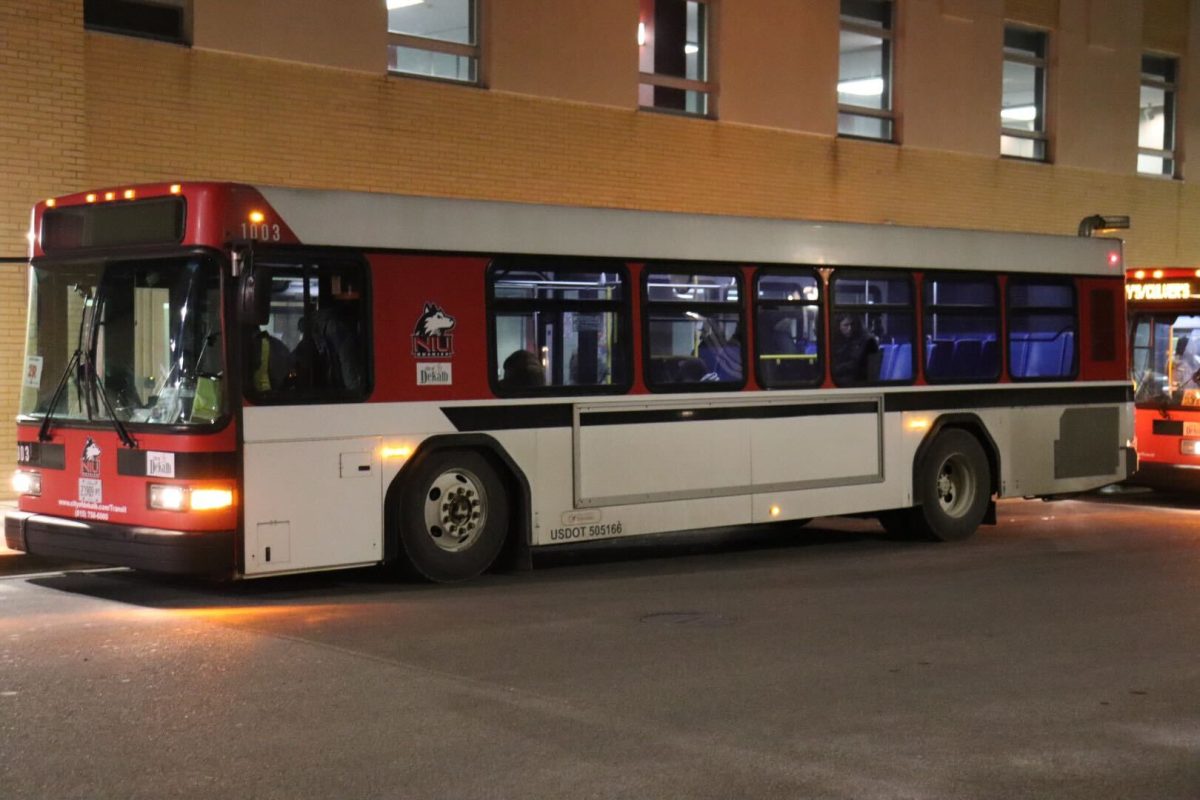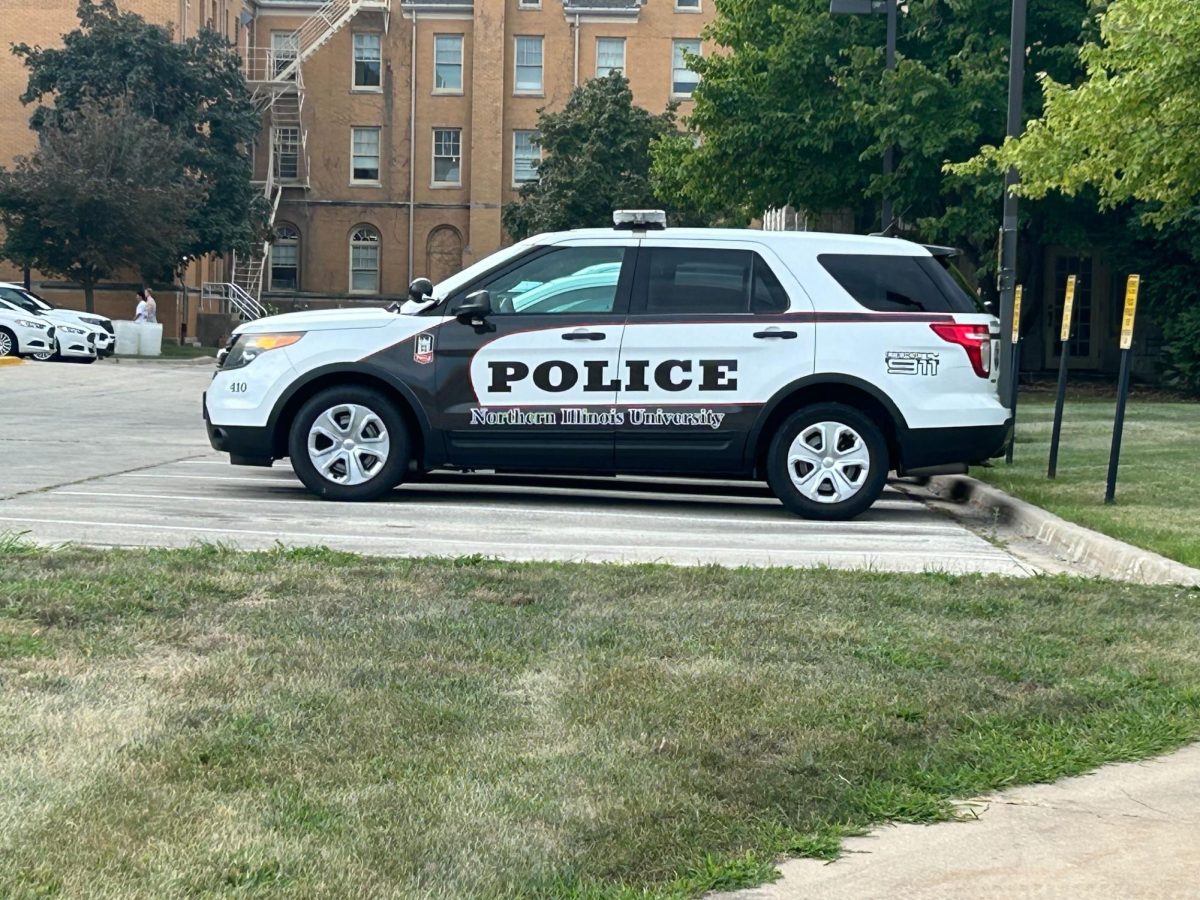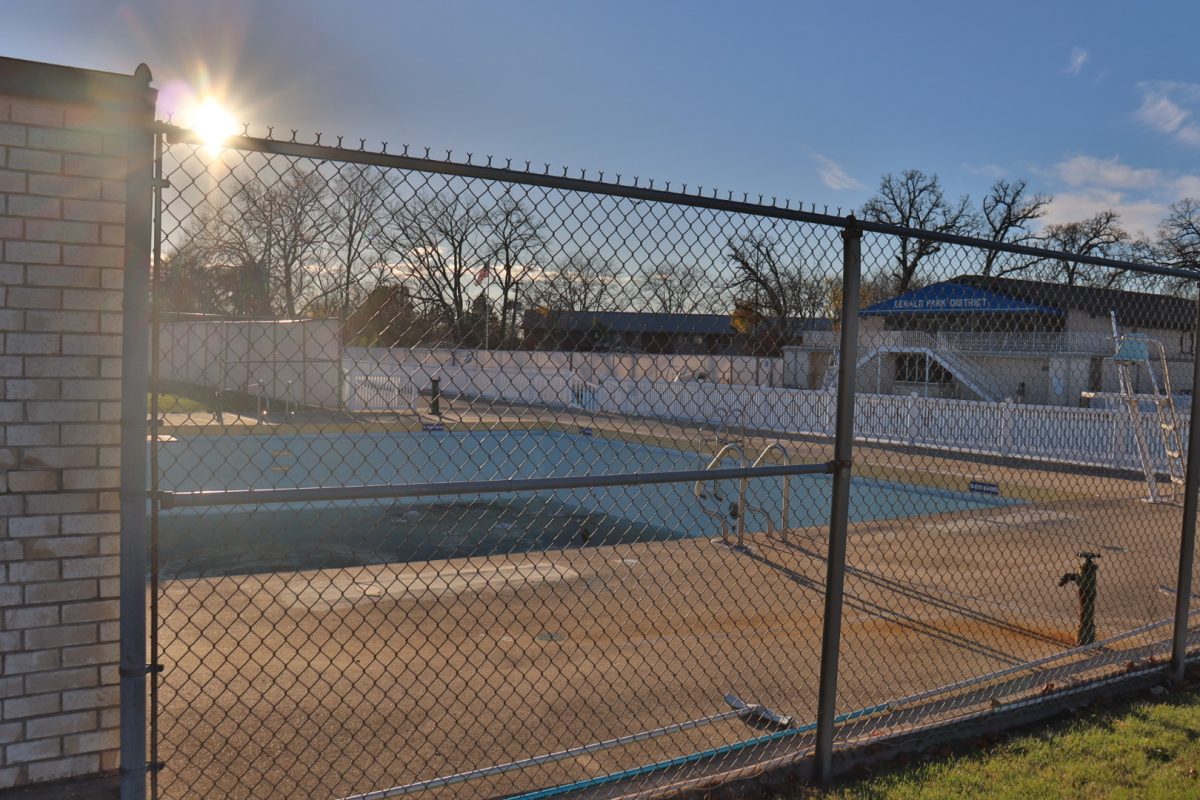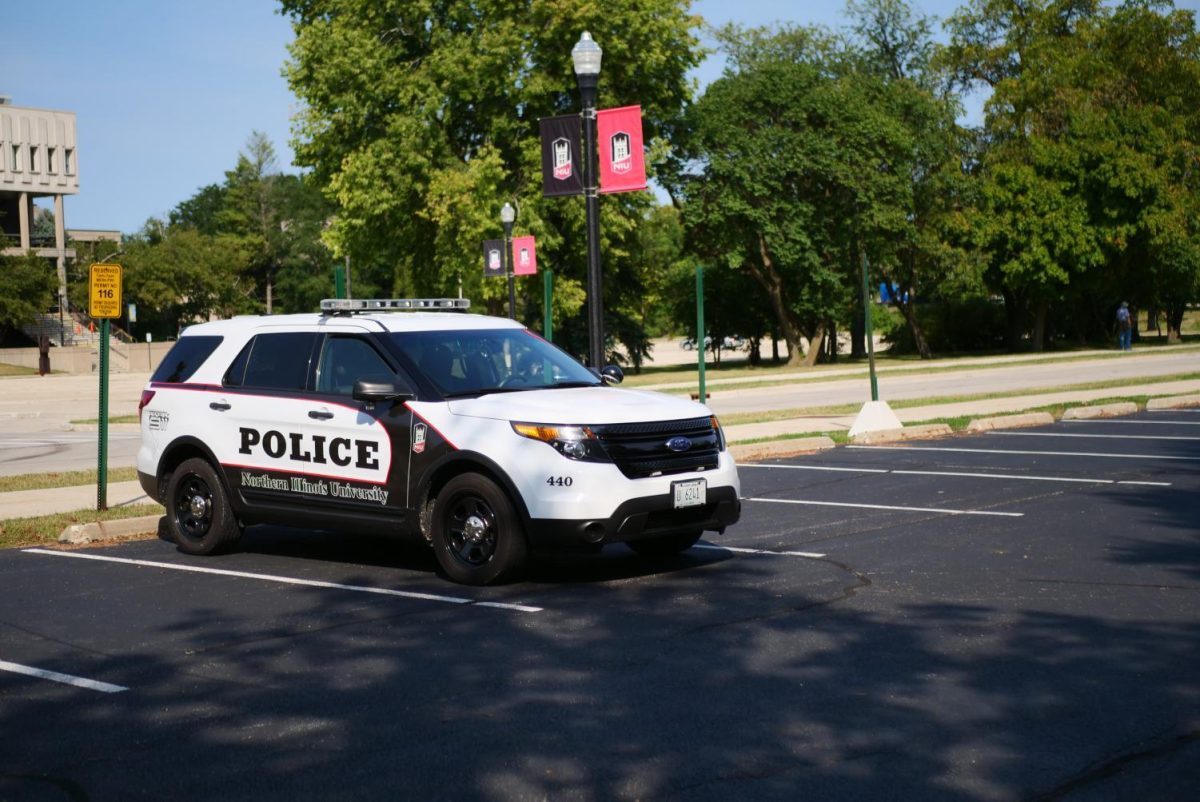DeKALB – Buses drive down the streets, conduct hundreds of service trips and move thousands of people each week.
It is no secret that transit systems are expensive. The DeKalb bus system requires funding for vehicle and infrastructure maintenance, paychecks for drivers and administrators as well as facilities and fuel.
For every credit hour students take, a portion of their tuition goes to the general fee. The NIU Board of Trustees then doles out a set amount per credit hour to cover various costs including access to the buses.
In 2025, NIU will be contributing $2.4 million to the bus system at a cost to individual students of $8.66 per credit hour for up to 12 credit hours.
A new full-time student will pay $103.92 per semester in Fall 2025 for access to the bus system. That same student will pay $96.51 per semester for the recreation center or $406.68 in athletic fees each semester.
NIU’s Board of Trustees sets the amount paid by students for these services each year. The following graph shows how much students have been charged per credit hour for access to the buses from 2020 through 2026:
It is important to note that it is NIU’s policy for individuals to have their tuition costs held steady for nine semesters. That is, a student that enrolled in Fall 2023 will be paying the same base rate through Fall 2027
Since full-time students pay a fixed amount, the cost per mile travelled each week quickly drops off as individuals ride the bus more:
While NIU’s $2.4 million is substantial, it is considerably less than how much NIU was spending before the consolidation of the DeKalb transit system in 2019.
Prior to 2019, NIU funded the Huskie Line for students and the Voluntary Action Center ran the Red, Green and Blue lines for Kishwaukee Community College, DeKalb and Sycamore.
NIU was paying over $4 million a year for the Huskie Line prior to the unification of the transit system. Consolidating the system has not only reduced what NIU pays but it also allows the city of DeKalb to receive considerable funding from the state and federal governments.
The city transportation budget contains $25 million in funding with state and federal funds making up nearly 90% of the total budget.
As with most large organizations such as universities and governments, there are two broad categories of costs: capital and operational. Capital projects include construction of new facilities and new buses. Operations costs include items such as salaries, fuel and maintenance.
In the 2025 city budget, $13 million is going towards the capital budget and $12 million is going to the operations budget.
Major capital improvements coming to DeKalb’s transit system include six buses, one of which will be a diesel-electric hybrid, a new bus tracking system and a new transit facility.
Currently, all the buses used on fixed routes are owned by TransDev, the company the city contracts to operate the routes. These six new buses, costing over $4 million, will be owned by the city of DeKalb and entirely paid for by the state of Illinois at no direct cost to NIU students or DeKalb residents.
The single hybrid bus will allow for the city to gain some experience and preliminary data on hybrid operations before making larger investments in hybrid or battery electric buses. The way the hybrid bus is designed will allow it to run emissions-free at set points along the route, reducing pollution in those locations.
The new municipal transit facility will have offices for staff, maintenance facilities including a chassis wash for the buses as well as fueling and electric charging stations for the future.
The facility will be located east of Fire Station 3 and southeast of the DeKalb County Health Department. Construction is expected to begin in spring 2026.
Nearly $7 million of the $12 million in operations budget is provided by the state of Illinois. The $2.4 million from NIU and an additional $2.5 million from the Federal Transit Authority are also dedicated to the operations budget.
According to the intergovernmental agreement forming the unified DeKalb, Sycamore and NIU transit system, NIU is required to contribute 35% of the cost of fixed route service; this was lowered in 2024 from 40%. While the size of NIU’s contribution changes year to year, the proportion of the total transit operations budget is rather constant.
As discussed in Part 1 of this story, for many, the public transportation system is necessary, making service reductions a nonstarter for many.
At a recent city council meeting, mayoral candidate Linh Nguyen emphasized the importance of the transit system, saying that it is “… not just a bus line, but a lifeline.”
The bottom line is this: Buses are costly, but these costs are fixed as the current level of service is seen by many in the community, city council and NIU as a necessity. As students and the tax payers of Illinois are providing for this system regardless, making use of it is an effective way to reduce waste on an individual level.








